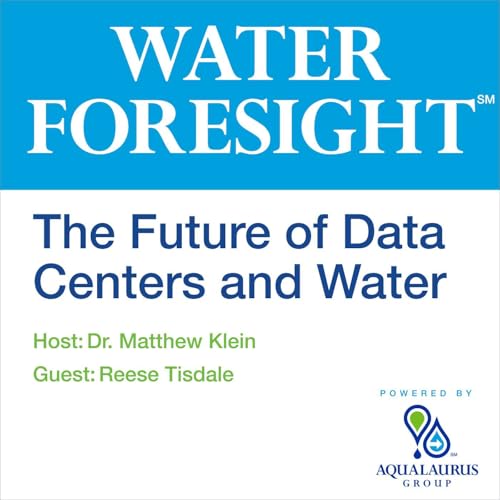We stand at the threshold of a new age. As the Industrial Era gives way to the Age of Intelligence, we face unprecedented transformation in every aspect of human existence. Steve Fisher, managing partner at Revolution Factory and chief futurist at the Human Frontier Institute, joins us to explore the nine "SuperShifts" reshaping our world.
From his teenage encounter with Alvin Toffler's "Future Shock" to developing his own social theory examining 200-year macro-historical patterns, Fisher offers a unique perspective on our transitional moment. These converging SuperShifts—from Generational Drift to Bionexus—represent massive, irreversible transformations that will redefine what it means to be human.
The Eco-Awakening SuperShift holds particular significance for water professionals. Fisher envisions water transforming from a utility into a strategic asset managed by artificial intelligence, priced by ecosystems, and governed as a shared resource. Smart watersheds, bioreactors, and decentralized infrastructure will revolutionize how we manage this precious resource, while questions about water rights and access take on new urgency.
Fisher's perspective is neither dystopian nor blindly optimistic, but "protopian"—recognizing both challenges and opportunities ahead. While acknowledging risks like cybersecurity threats to water systems and potential water conflicts, he emphasizes humanity's resilience and capacity for positive change. Most importantly, he advocates for foresight as a discipline, moving beyond reactive thinking to anticipate and shape preferred futures.
Ready to navigate this transformative era? Join us as we explore how these SuperShifts will reshape our relationship with water and redefine what it means to be human in the Age of Intelligence. After listening, you'll understand why traditional approaches no longer serve us and how embracing foresight can help build more sustainable, equitable systems for generations to come.
Book Site - www.supershiftsbook.com
Steve’s Site - www.stevenfisher.io
Get the first two chapters - https://tfn.kit.com/bb0223ff53
Think Forward Show - https://thinkforward.buzzsprout.com/
#water #WaterForesight #strategicforesight #foresight #futures @Aqualaurus
 Dec 17 202551 mins
Dec 17 202551 mins Dec 10 202538 mins
Dec 10 202538 mins Sep 3 202549 mins
Sep 3 202549 mins Aug 13 202550 mins
Aug 13 202550 mins Jul 30 202529 mins
Jul 30 202529 mins 55 mins
55 mins 40 mins
40 mins 35 mins
35 mins
